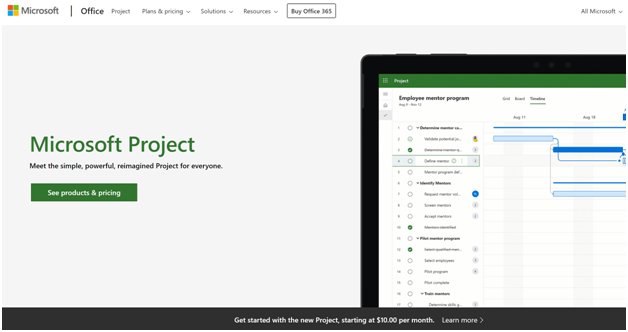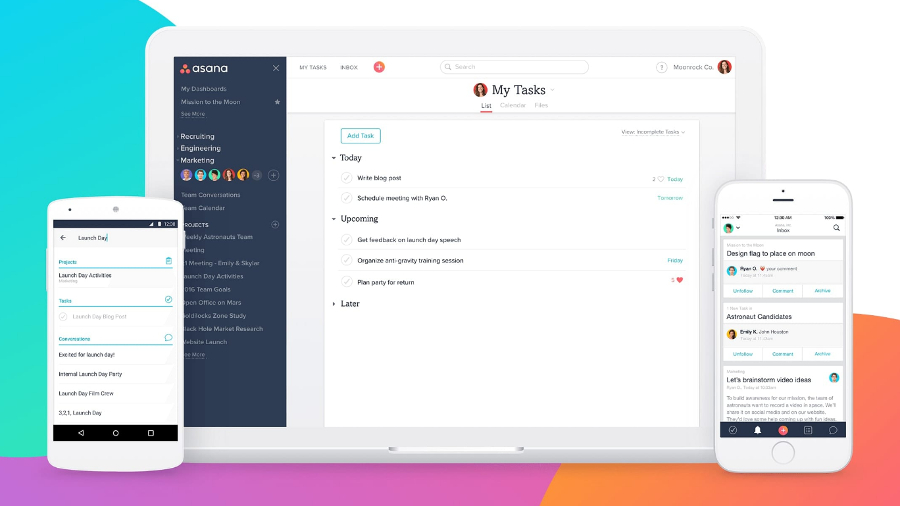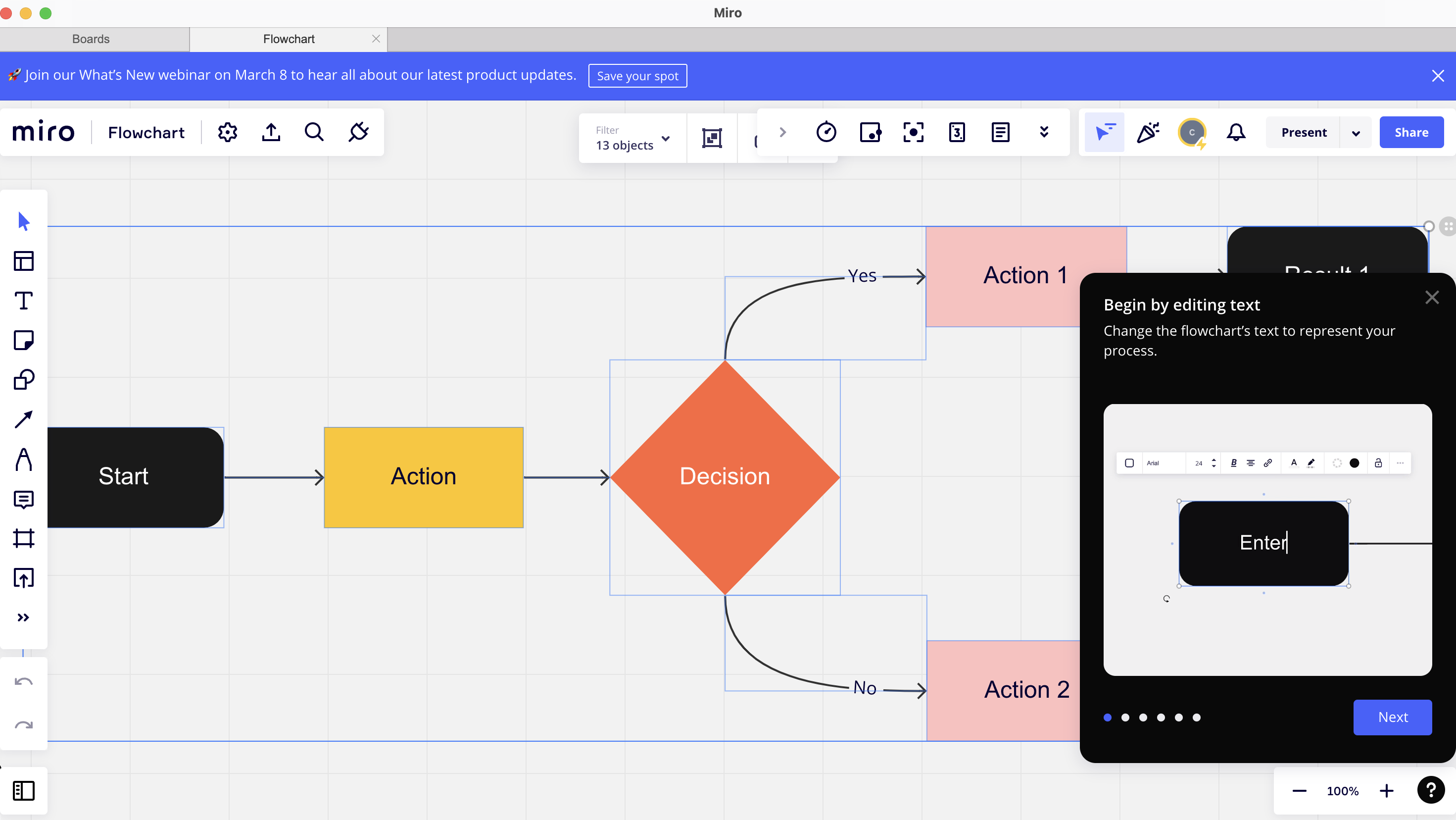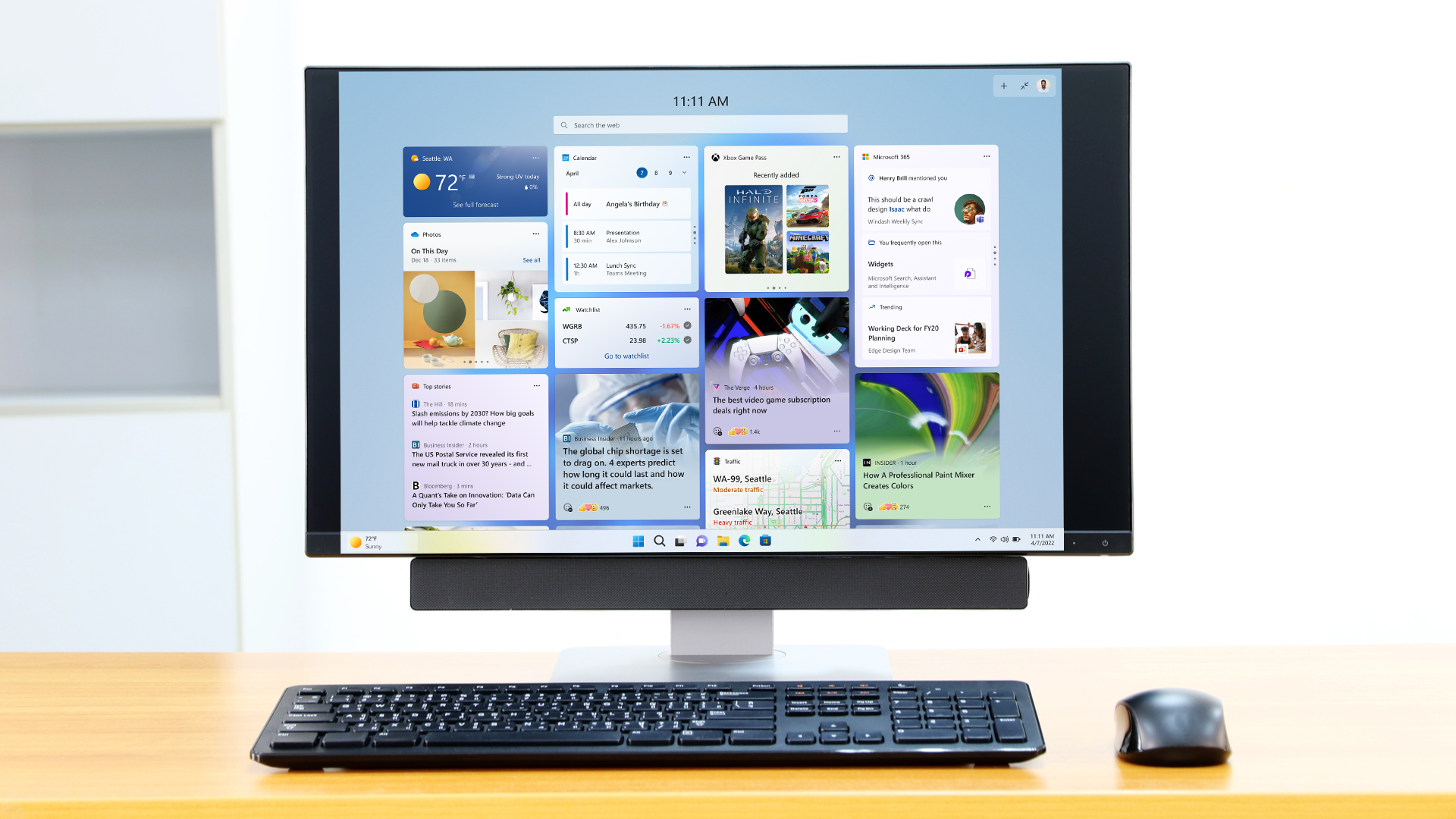
Whatever level of an organisation you're currently at, having the best project management software available can make a huge difference, to get the most out of your employees and your own work.
As more and more work moves online – and the pandemic caused offices to become virtual, or nearly virtual – keeping track of tasks, schedules, reporting, resources, and everything in between can be a real pain.
Gone are the days when things were categorised simply on paper and even, more recently, on spreadsheets; to successfully stay on top, in the workplace and against competitors, an extra edge is needed, and that's what we're here to help with today.
We've spent a lot of time testing the best options for managing a diverse array of projects, from the obvious (Microsoft Project and Trello) to the upstarts (Monday.com). All of that knowledge has been condensed into our guide on choosing the best project management software in 2023.

What is project management?
Before we get into the nuts and bolts of helping you and your organisation choose the best project management tools, it's useful to take a quick step back.
If you're reading this article, you're more than likely familiar with project management as a concept and might even be aware of some of the big players in the industry, including the likes of Microsoft (unsurprisingly), Trello, and Asana.
The core goals are pretty simple: efficiency. Trying to keep track of everything that's happening at an organisation of even a few people can be a massive challenge, and doing so to the very top level is harder still. Software can help.
A lot of the features are based around tracking and assigning tasks, setting goals, allowing collaboration and communication among team members, providing progress reports, and overall analysts of what is working and what isn't.
Of course, each platform offers something slightly different and that's what we'll now go over.
The key tools
As we found in our best project management software guide, the key players are a range of companies, from Microsoft to upstarts like Miro. Let's take a closer look.

Microsoft Project
By far the most comprehensive and advanced tool out there, with the added bonus of seamlessly integrating with Microsoft's suite of productivity tools, many of which will be embedded deeply within organisations. Users of Excel will immediately feel at home, a huge win for productivity, although of course there are still some learning curves that come with Project.
In the "pro" column, Microsoft Project offers budget forecasting, cloud and on-premise variants, advanced Gantt charts, and supports detailed task descriptions.
The only real downsides we could find were the cloud version is fairly expensive for large teams (offset against productivity gains, of course) and the app lacks a decent mobile app, which may or may not be an issue.
We recommend Project for large organisations and experienced professionals; people who want to be able to reach a level of complexity within the app and don't mind having to spend some time getting to grips with the software.

Asana
If you've made it this far then you're clearly looking for something that isn't from Microsoft. Luckily, there are a good few options for anyone wanting to operating outside of the Office-verse, and the first is Asana.
The big focus of this app, which you may well have heard of via its extensive advertising campaigns, is tracking, or keeping tabs on how projects are doing. Creating to-do lists and reminders, as well as tracking what others are doing, forms the core of the app.
As you might expect from an upstart competitor, integrating with Asana is really simple and the app supports a variety of third-party actions, like sharing images from other apps like Google Drive.
One of the big upsides is Asana's free (or Basic) tier, which offers more limited functionality and dashboards while being the perfect way to see how you get on.

Miro
A somewhat surprising addition to our list comes from Miro, which combines numerous products, offers reasonable pricing, and has options for third-party integrations, making this the best all-in-one platform going.
Something Miro does well is bridging the gap between hybrid (or fully remote) working and office-based productivity, a staple of the post-pandemic era.
The basic building block are Boards, which start off entirely blank, a somewhat daunting sight until you get the hang of what to add and how. (Miro does also offer some templates, like mind-maps and flowcharts.)
Miro's main appeal is just how much ground the app can cover, and cover well: there are a lot of different features and services on offer here, all of which right to a decent level in comparison to the other offers in this article. Pricing is reasonable, too, making this ideal for small- to medium-sized businesses.

Trello
Rounding out our list of the best project management tools is Trello, one of the most popular options for workplaces that works really well across all platforms, including a very sleek mobile experience. Google is among Trello's clients.
Everything with Trello is just simple and intuitive, from the very creation of boards to custom workflows and attaching files. The goal is to manage all of your work in one place, whether that's team-based or as an individual.
Like Asana, Trello offers a free version with limited features (like a limit on attachment file size), to let anyone try out the app. A paid tier, called Business Class, brings wider integrations (eg, with Slack) and one-day email support.

Are smaller providers worth it?
If none of these options are appealing for whatever reason, we have to shout out some of the smaller project management options we tried. Many of these specialise in one specific area, which might be just what you're after.
- Zoho Projects: An excellent option for small teams, Zoho offers easy visualizations, document storage options, and nice integration options. Pricing is dependant on how many users there are within an organisation, meaning this is potentially excellent value if you're in a small and nimble company.
- Basecamp: With over a decade of life under its belt, Basecamp is one of more storied tools on this list and still packs a bunch, offering an array of helpful features around direct messaging, setting schedules, and avoiding fragmentation by offering an overwhelming number of tools. The free version supports up to 20 people, too.
- Liquid Planner: If you want certainty of never missing a deadline, Liquid Planner is the right tool, offering smart schedules to help with prioritisation and an enterprise-grade feature set. There's a 14-day free trial but the app can be expensive.

Conclusion
So, that's the overall state of the project management software world. Any organisation should seriously consider most of the tools on this list, and maybe even try some of them via the free tiers. Microsoft comes out on top but there are some really great alternative options elsewhere.








